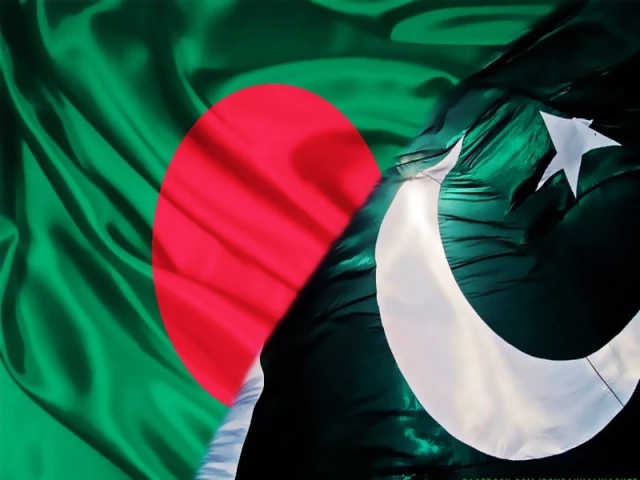Islamabad:
Pakistan and Bangladesh are committed to strengthening bilateral relations after the Vice-Prime Minister and Foreign Affairs Ishaq Dar met Bangladesh advisor on Foreign Affairs, Touhid Hussain, on Monday on the sidelines of the international conference on the two-state solution to the United Nations in New York.
This marks the fourth high-level interaction between the two countries since October 2024, indicating a renewed momentum in Pakistani-Bangladesh links after years of tension.
According to a statement published by the Ministry of Foreign Affairs, the two leaders carried out a complete examination of bilateral relations and reaffirmed their common commitment to strengthen political, economic and cultural cooperation.
They also agreed to promote the connectivity and exchanges of people to the person, with plans to facilitate high -level bilateral visits in the near future.
The two parties expressed profound concern in the face of the serious humanitarian crisis in Gaza and the Israeli military assault ongoing against the Palestinians. They underlined their unshakable solidarity with the Palestinian people and underlined the need for significant results of the current conference on the two -state solution.
The links between Islamabad and Dacca have witnessed a notable thaw since the eviction of the government of Sheikh Hasina in August of last year, which had long maintained a difficult posture on Pakistan for historical grievances. The change of government in Dacca has enabled a more pragmatic and prospective commitment between the two nations of South Asian Muslim majority.
Last week, Interior Minister Mohin Naqvi went to Dhaka, where he had talks with his counterpart in Bangladesh, lieutenant-general Jahangir Alam Chowdhury. The two parties have concluded a historic agreement to grant an entry without visa to holders of diplomatic and official passports-a decision widely considered as symbolic of increasing mutual trust and a step towards meeting insurance for travel restrictions for future trade and official exchanges.
With the change in regional dynamics, in particular in the light of the growing influence of China and the decline of traditional regional groups such as Saarc, Pakistan and Bangladesh seem to recalibrate their foreign policy strategies.
The two countries now explore cooperation based on development, development, trade and strategic autonomy, going beyond historical baggage.
Recent commitments also reflect the wider diplomatic pressure of Pakistan to reconnect with the neighbors of South Asia, strengthen the solidarity of the Muslim world and project a more constructive role in regional diplomacy.
Since the eviction of the Sheikh Hasina government, the interim administration of Bangladesh has eliminated restrictions on diplomats and Pakistani imports, giving new impetus to bilateral ties.




